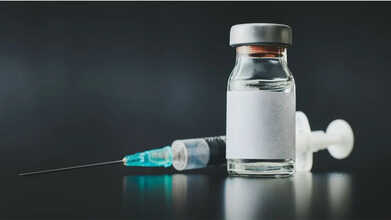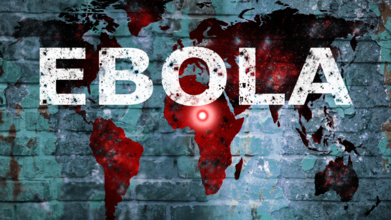- Health Conditions A-Z
- Health & Wellness
- Nutrition
- Fitness
- Health News
- Ayurveda
- Videos
- Medicine A-Z
- Parenting
- Web Stories
What Is Batten Disease? Fatal Genetic Conditions Causing Waste Build Up In Kids Brain

Image Credit: Canva (representational only)
A life-saving medicine for children with Batten disease, a rare and fatal genetic disorder, is set to be pulled from the market because of unresolved pricing negotiations. Otherwise called CLN2, Batten disease causes devastating symptoms, including seizures, loss of mobility, blindness, and worsening dementia, with a life expectancy of around 10 to 12 years. In the UK, approximately 40 children are currently undergoing treatment under a Managed Access Agreement (MAA) between NHS England and BioMarin, the pharmaceutical company that makes the drug. But with the agreement about to end, families worry about losing the sole existing treatment that will slow the disease's progression.
Batten disease is one of the rarest and most destructive neurodegenerative illnesses in children. The inherited disease results in a buildup of waste products in brain cells, producing worsening neurological deterioration, seizures, loss of speech, blindness, and premature death. With no treatment and limited therapies, Batten disease is a devastating diagnosis for families everywhere.
What is Batten Disease?
Batten disease, or neuronal ceroid lipofuscinosis (NCL), is a term used to describe a series of lethal genetic disorders that affect the body's ability to remove waste from cells. Toxic compounds then build up in brain cells and cause them to malfunction and die.
Kids with Batten disease can develop normally for several years of life, but as the accumulation of waste continues, symptoms become sudden. The disease ultimately takes away the children's ability to walk, speak, see, and even identify their loved ones. The majority of kids with Batten disease don't live past their teens.
What Causes Batten Disease?
Batten disease is a hereditary disorder that results from mutations in genes, which interfere with proper cellular functioning. The condition has an autosomal recessive mode of inheritance, such that the child inherits two copies of the faulty gene—one from each parent—before the disease sets in. Only one copy of the gene in the parents often has no manifestation, but it gives them a 25% probability of passing on the disorder to the offspring during each conception.
Symptoms of Batten Disease
Batten disease varies in how it affects each child, but symptoms may include:
- Seizures and epilepsy
- Loss of vision to complete blindness
- Speech and language problems
- Loss of motor function, leading to an inability to walk and eventual paralysis
- Cognitive impairment and loss of memory
- Changes in personality and psychiatric disturbances such as aggression or anxiety
- Dementia-like features at an early age
- Extrapyramidal features such as tremor, rigidity, and restlessness
The rate at which the symptoms develop differs from child to child, but the ultimate outcome is always tragic—complete neurological degeneration and premature death.
How Common Is Batten Disease?
Batten disease is very rare, with a prevalence of about 3 cases per 100,000 births in the United States. In the UK, only about 40 children are being treated for the condition, and one to six children are born with Batten disease each year.
Treatment Options: Is There Any Hope?
Currently, there is no cure for Batten disease. Nevertheless, medical research has produced some encouraging treatments:
Enzyme Replacement Therapy (ERT): Brineura, a medication by BioMarin, is the sole treatment approved for one type of Batten disease (CLN2). It slows disease progression but neither halts nor reverses damage.
Gene Therapy: Scientists are exploring gene therapy methods that will replace faulty genes with normal genes. This is still in the experimental phase.
Supportive Care: Because there is no certain cure, treatment is largely symptom management by way of anti-seizure medications, physical therapy, speech therapy, and mobility and communication assistive devices.
Challenge To Access to Treatment
One of the big issues with Batten disease treatment is accessibility. The sole drug available, Brineura, has a colossal price tag—at more than £500,000 per patient annually. This has made temporary access in the UK possible after an agreement under a Managed Access Agreement (MAA) between the National Health Service (NHS) and BioMarin, but the agreement is to lapse in May unless fresh negotiations are successful.
The expense of treatment is so high that it generates ethical and economic arguments over whether life-prolonging treatments for ultra-rare conditions should be provided despite the cost. For families with Batten disease, the prospect of losing access to this life-prolonging treatment is horrific.
Unfortunately, the prognosis for children with Batten disease is poor. The disease is always terminal, with life expectancy differing based on the particular type of Batten disease. The majority of children diagnosed with the disorder do not live beyond their teenage years.
As the disease advances, children lose the capacity to speak, move, and identify people they love. Ultimately, organ failure occurs, resulting in premature death. Though research continues in hopes of developing improved treatments and eventually a cure, the reality for Batten disease families at present is heartbreakingly challenging.
Batten disease is a heartless and unrelenting disease that robs children of their potential and families of their dreams. With the progress of science, there remains hope that gene therapy and other new treatments could one day provide a cure. Until then, awareness, advocating for affordable treatment, and funding research are imperative steps in the battle against Batten disease.
Until then, suffering families and doctors must endure the hardship of this lethal disorder, awaiting a turning point that will revolutionize the destiny of children afflicted with Batten disease.
US Health Officials To Examine Covid Vaccine Effects In Pregnant Women And Kids

Credits: Canva
Federal health officials are taking a closer look at the safety of COVID-19 vaccines in pregnant women and children, while also weighing updates to recommendations for older adults.
According to U.S. News, the Food and Drug Administration (FDA) is reviewing reports of possible birth defects following vaccination during pregnancy and is preparing data on deaths in children after receiving COVID shots.
The review will be presented during a September 18-19, 2025, meeting with the Centers for Disease Control and Prevention’s (CDC) vaccine advisory committee, CNN reported. Experts emphasise that the Vaccine Adverse Event Reporting System (VAERS), one of the primary tools being used in the review, is a monitoring system meant to detect potential safety signals. It does not establish that vaccines directly caused the reported health problems.
What Is VAERS?
The Vaccine Adverse Event Reporting System (VAERS) is designed to act as an early-warning tool, flagging potential safety signals that may warrant further study. “VAERS is a system that generates hypotheses,” explained Dr Demetre Daskalakis, who recently stepped down as director of the CDC’s National Center for Immunization and Respiratory Diseases, in an interview with CNN.
So far, large-scale studies have continued to show that COVID-19 vaccines are safe in pregnancy. The CDC has tracked outcomes in more than 23,000 pregnant women through one registry and more than 45,000 in another database, finding no increased risk of miscarriage, major birth defects, or other complications. Similarly, Pfizer reported that rates of birth defects in vaccinated participants during a clinical trial were comparable to those in the general population.
The CDC advisory committee is also expected to discuss whether vaccine guidance for older adults should be revised. While COVID vaccines are currently approved for adults 65 and older, as well as younger adults at high risk of severe illness, the panel may consider recommending them mainly for those 75 and older, or for younger individuals with underlying conditions.
ALSO READ: Is 'Stratus' COVID Variant The Pandemic’s Next Chapter In 2025 With New Symptoms?
New COVID Variant ‘Stratus’ Dominates U.S. Cases
COVID-19 activity remained high across the United States during the first week of September, according to fresh data from the Centers for Disease Control and Prevention (CDC). Despite the confusion around emerging strains, shifting vaccine guidelines, and cuts to vaccine development funding, the agency continues to track cases, hospitalisations, and deaths on a weekly basis.
For the four weeks ending August 30, projections show that a new variant called XFG. nicknamed “Stratus” accounted for 78 percent of infections nationwide. The next most common strains were NB.1.8.1 at 14 percent and LP.8.1 at 3 percent.
ALSO READ: Ozempic Users Found To Age Back By More Than 3 Years, Finds New Trial; Peer Review Pending
What Is the ‘Stratus’ Variant?
XFG is a late-summer Omicron offshoot and a recombinant strain, formed by blending two earlier lineages: F.7 and LP.8.1.2. Scientists say the variant may carry mutations that help it slip past parts of the immune system more effectively, though there is no evidence yet that it spreads faster than previous strains.
The CDC advises people to watch for familiar COVID-19 symptoms, which continue to include:
- Fever or chills
- Cough
- Fatigue
- Sore throat
- Loss of taste or smell
- Congestion
- Muscle aches
- Shortness of breath
- Headache
- Nausea or vomiting
World Patients Safety Day 2025: WHO Calls For A Safer Care Of Children And Newborn

Credits: Canva
Every year on September 17, the world pauses to reflect on one of the most pressing challenges in healthcare, patient safety. Since its launch by the World Health Organization (WHO) in 2019, World Patient Safety Day has become a global campaign calling for stronger collaboration, awareness, and action to prevent avoidable harm in healthcare systems.
In 2025, the theme is “Safe care for every newborn and every child”, with the slogan “Patient safety from the start!”. The message is clear: children are not just fragile as they do not have the same levels of immunity as adults, they require special attention, protection, and tailored medical care from the very beginning of life.
Why Patient Safety Matters
Patient safety is not an isolated goal; it is the very foundation of healthcare. Without safe practices, no system can achieve universal health coverage or progress toward the Sustainable Development Goals (SDGs). The WHO emphasizes that unsafe care remains one of the top ten causes of death and disability worldwide, disproportionately affecting vulnerable groups such as newborns and children.
The objectives of World Patient Safety Day include:
- Increasing public awareness and commitment to safety.
- Promoting global solidarity for safer healthcare.
- Addressing specific issues that put patients at risk.
- Empowering families and communities to play an active role.
Focus on Children’s Health
Children are particularly vulnerable to risks in healthcare. Unlike adults, they cannot decide which clinic to visit or which treatment to accept. They must rely entirely on parents, caregivers, and healthcare professionals. Their smaller bodies, developing immune systems, and emotional needs mean they often respond differently to illness and medical interventions.
The German Coalition for Patient Safety (APS) stresses that children should not be treated through an “adult lens.” Its slogan for 2025: “Patient safety from childhood onwards, an investment for life", captures the long-term importance of safe care for the youngest patients. APS is also encouraging parents, pediatricians, obstetricians, and nurses to share their experiences and identify both strengths and gaps in healthcare delivery.
A Global Call for Action
The urgency of this year’s theme is evident in global statistics. WHO’s Regional Director for Africa, Dr. Mohamed Janabi, recently highlighted that poor quality care, rather than lack of access, accounts for 60% of maternal deaths and 56% of neonatal deaths in low- and middle-income countries.
While access to hospitals has improved in many regions, unsafe practices, such as inadequate infection prevention, misdiagnosis, or insufficiently trained staff, continue to harm patients. Encouragingly, 21 African countries have already introduced National Quality Policies and Strategies that include patient safety measures like infection control, but more progress is needed.
Building on Past Efforts
World Patient Safety Day campaigns in previous years have focused on areas such as safe childbirth, medication safety, health worker safety, and diagnostic safety. This year’s emphasis on paediatric and newborn care builds on those efforts, recognizing that safety at the start of life shapes long-term health outcomes.
The Global Patient Safety Action Plan 2021–2030 provides a roadmap to strengthen safe practices through:
- Safer clinical processes.
- Improved training and workforce competencies.
- Stronger patient and family engagement.
- Advocacy and education beginning from childhood.
From Awareness to Action
World Patient Safety Day 2025 is not just about raising awareness, it is also about mobilizing concrete action. Governments, hospitals, professional associations, and civil society organizations are being urged to implement sustainable strategies to safeguard children’s health. Parents and caregivers, too, are encouraged to actively participate in their child’s medical journey by asking questions, understanding treatment plans, and advocating for safe care.
Around the world, awareness activities will include advocacy campaigns, technical discussions, and the illumination of landmarks in orange, the signature color of the campaign. These symbolic gestures serve as powerful reminders that safe healthcare is a universal right, not a privilege.
Patient Safety From the Start
This year’s slogan, “Patient safety from the start!”, underscores that ensuring safe care from birth is not optional, it is essential. Protecting children from avoidable harm is both a moral responsibility and an investment in healthier societies.
World Patient Safety Day 2025 is a reminder that safe care is achievable when everyone, from policymakers to frontline nurses, and from parents to international organizations, works together. After all, safeguarding the health of children today ensures a stronger, healthier world tomorrow.
Ebola Outbreak Update: Vaccines Continue To Arrive As Congo Yet Again Becomes Disease Hotspot

Credits: Canva
Just 10 days after the Democratic Republic of the Congo (DRC) declared an Ebola virus outbreak in Kasai province, health authorities have rolled out a vaccination drive targeting frontline workers and contacts of patients, the World Health Organization (WHO) confirmed in its latest update.
First Vaccines Arrive in Bulape
The first consignment of 400 doses of Ervebo (VSV-EBOV) was dispatched to Bulape health zone from a national stockpile of 2,000 doses stored in Kinshasa. Some frontline health workers in the capital had already received the vaccine. The WHO said additional shipments are expected in the coming days to sustain the response effort.
Health teams are deploying a “ring vaccination” strategy, which prioritizes those at the highest risk of infection, including patient contacts and health workers directly exposed to cases.
Also Read: What Is Babesia That Could Block Your Lyme Disease Recovery?
Global Support for Vaccine Supply
To ensure adequate coverage, the International Coordinating Group on Vaccine Provision has approved an additional 45,000 doses to be sent to the DRC. The WHO is assisting the Ministry of Health in formalizing a request for these doses and has also worked with partners to draw up a detailed immunization plan. Training sessions for vaccination teams are underway to streamline the rollout.
Alongside vaccines, treatment options are being reinforced. Courses of the monoclonal antibody therapy MAb114 (ansuvimab-zykl, commercially known as Ebanga) have already been dispatched to treatment centers in Bulape to support patient care.
Rising Case Numbers and Death Toll
Despite these interventions, the outbreak continues to grow. At a meeting of the provincial Ebola emergency committee on September 13, officials reported a sharp increase in infections and fatalities. According to the DRC’s National Public Health Laboratory (INRB), total cases have now risen to 81, with 28 deaths recorded, marking a case-fatality rate of 34.6%.
The latest figures represent a significant jump from a few days earlier, when authorities reported 68 suspected cases (including 20 confirmed) and 16 deaths.
Also Read: Congo Ebola Outbreak Caused By The Zaire Strain So Far Has 28 Deaths, Confirms WHO
Of seven new suspected cases detected in the Bulape health zone, five have been confirmed through laboratory testing. This highlights both the rapid spread of the virus and the crucial role of diagnostic capacity in containing the outbreak.
Expanding Contact Tracing
Efforts to trace and monitor contacts are also being scaled up. Health officials identified 58 new contacts in recent days, bringing the total to 716. Contact tracing is a cornerstone of the response, enabling teams to vaccinate and monitor individuals most likely to have been exposed.
In a further boost to local capacity, another 360 vaccine doses have arrived in Tshikapa, the provincial capital of Kasai. This shipment is expected to support wider vaccination efforts in neighboring areas.
With Ebola continuing to claim lives in Kasai, health authorities in the DRC and their global partners are racing to contain the outbreak. Vaccines, therapeutic drugs, and intensive contact tracing remain at the heart of the strategy. However, the rising case count underscores the urgent need to maintain momentum and secure sufficient supplies before the virus spreads further.
© 2024 Bennett, Coleman & Company Limited

